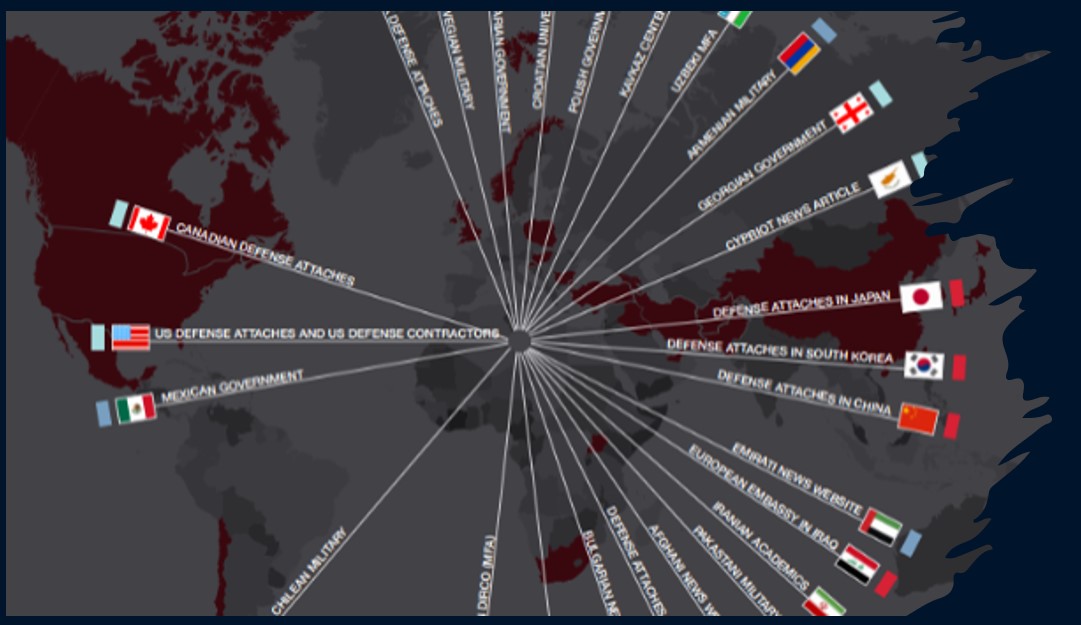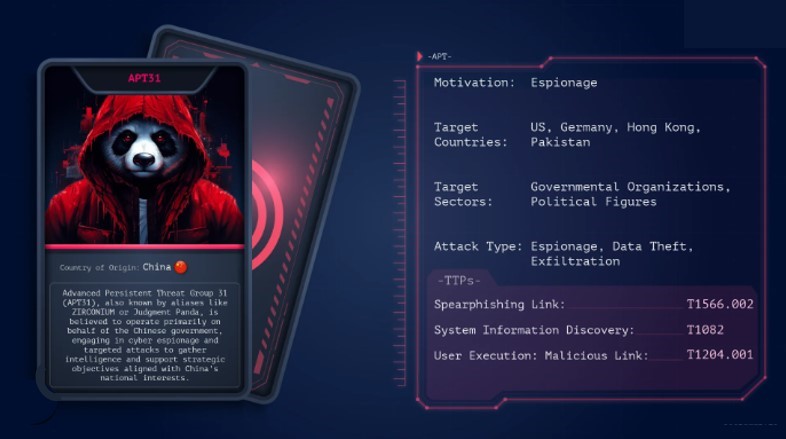The Silent Battlefield of the Digital Age
November 5, 2024

In our increasingly interconnected world, where data is as valuable as gold, a new type of warfare has emerged- cyberwarfare. Unlike traditional forms of conflict, this battlefield is largely invisible, conducted through networks and algorithms rather than troops and tanks. At the forefront of this digital conflict are state-sponsored hacking and espionage activities, where nations deploy cyber tools to gain strategic advantages over their rivals. This blog explores the nature of state-sponsored hacking, its methods, targets, and the broader implications for global security.
What is State-Sponsored Hacking?
State-sponsored hacking refers to cyber-attacks carried out by or on behalf of a government with the intent of achieving political, economic, or military objectives. These operations are typically conducted by highly skilled groups, often referred to as Advanced Persistent Threats (APTs). These groups are well-funded, have access to cutting-edge technology, and are often shielded from legal consequences by the governments they serve.
Objectives of State-Sponsored Hacking
- Espionage: The primary goal of many state-sponsored hacking efforts is espionage—gathering sensitive information from foreign governments, corporations, or individuals. This can include intelligence on military capabilities, diplomatic strategies, or economic plans.
- Political Influence: Cyber-attacks can be used to disrupt political processes in rival nations. This includes influencing elections, spreading misinformation, or leaking sensitive information to destabilize governments.
- Economic Gain: Some state-sponsored hackers target intellectual property, trade secrets, or financial systems to give their country a competitive edge in global markets. This can involve stealing proprietary technology, undercutting foreign businesses, or manipulating financial markets.
- Military Disruption: In times of conflict, cyber-attacks can be used to disable or disrupt an adversary’s military infrastructure. This can involve targeting communication systems, defense networks, or critical infrastructure like power grids and transportation systems.
Methods of State-Sponsored Hacking
- Spear Phishing: This involves sending highly targeted emails to individuals within a specific organization. These emails often appear legitimate but contain malicious links or attachments that, when clicked, allow hackers to gain access to the recipient’s system.
- Zero-Day Exploits: State-sponsored hackers often use zero-day exploits—vulnerabilities in software that are unknown to the software vendor. These exploits are highly valuable because they can be used to infiltrate systems without detection.
- Supply Chain Attacks: In these attacks, hackers target the supply chain of a company or government entity. By compromising a third-party vendor, hackers can gain access to a much larger network, often going unnoticed for extended periods.
- DDoS Attacks: Distributed Denial of Service (DDoS) attacks involve overwhelming a target’s servers with traffic, causing them to crash. While often used as a distraction, DDoS attacks can cripple websites, communication networks, and other critical infrastructure.
- Malware and Ransomware: State-sponsored hackers deploy sophisticated malware to infiltrate networks and exfiltrate data. Ransomware is sometimes used not just to demand payment but to cause significant disruption or damage as part of a broader strategic objective.

Notable Examples of State-Sponsored Hacking
- Stuxnet: Perhaps one of the most famous examples of state-sponsored hacking, Stuxnet was a sophisticated worm that targeted Iran’s nuclear facilities. It is widely believed to have been developed by the United States and Israel to sabotage Iran’s nuclear program.
- SolarWinds Attack: In 2020, a massive cyber-attack compromised numerous U.S. government agencies and private companies. The attack, attributed to Russian state-sponsored hackers, involved inserting malicious code into a software update from SolarWinds, a widely used IT management company.
- Operation Aurora: A series of cyber-attacks conducted by Chinese hackers in 2009 targeted dozens of major companies, including Google. The attackers aimed to gain access to intellectual property and gather intelligence on political dissidents.
- APT10: A Chinese state-sponsored group, APT10, has been involved in numerous cyber espionage campaigns targeting industries worldwide. They have primarily focused on stealing intellectual property and trade secrets.
The Broader Implications of State-Sponsored Hacking
The rise of state-sponsored hacking has profound implications for global security and stability:
- Escalation of Cyber Warfare: As more nations develop cyber capabilities, the risk of cyber conflicts escalating into broader confrontations increases. Cyber-attacks could potentially lead to real-world military responses, blurring the lines between digital and physical warfare.
- Challenges to International Law: The covert nature of state-sponsored hacking makes it difficult to apply traditional international laws. Attribution is challenging, and even when an attack is traced to a specific country, holding that nation accountable is fraught with diplomatic complexities.
- Erosion of Trust: State-sponsored cyber activities undermine trust between nations. Espionage, interference in elections, and attacks on critical infrastructure create an atmosphere of suspicion and hostility, complicating diplomatic relations.
- Impact on the Private Sector: State-sponsored hackers often target private companies, leading to significant financial losses, reputational damage, and disruptions in global supply chains. Businesses are increasingly finding themselves on the front lines of this new form of warfare.

Defending Against State-Sponsored Hacking
- International Cooperation: Nations must collaborate to establish norms and agreements governing state behavior in cyberspace. International cooperation is crucial for tracking down state-sponsored hackers and holding their sponsors accountable.
- Advanced Cybersecurity Measures: Governments and businesses need to invest in cutting-edge cybersecurity technologies, such as artificial intelligence and machine learning, to detect and defend against state-sponsored threats.
- Attribution Capabilities: Developing robust attribution capabilities is essential for identifying the source of cyber-attacks. Accurate attribution can deter future attacks by raising the stakes for offending nations.
- Public-Private Partnerships: Governments should work closely with the private sector to share intelligence and develop strategies to protect critical infrastructure and sensitive information from state-sponsored threats.
State-sponsored hacking and espionage represent a new frontier in global conflict, where nations compete for power, influence, and resources in cyberspace. The clandestine nature of these activities makes them difficult to detect and even harder to combat, posing significant challenges to international security. As the digital landscape continues to evolve, so too will the tactics and strategies of state-sponsored hackers. To defend against this growing threat, a coordinated global response, leveraging the latest in technology and intelligence sharing, is essential.
Have Any Question?
Call or email Cocha. We can help with your cybersecurity needs!
- (281) 607-0616
- info@cochatechnology.com




